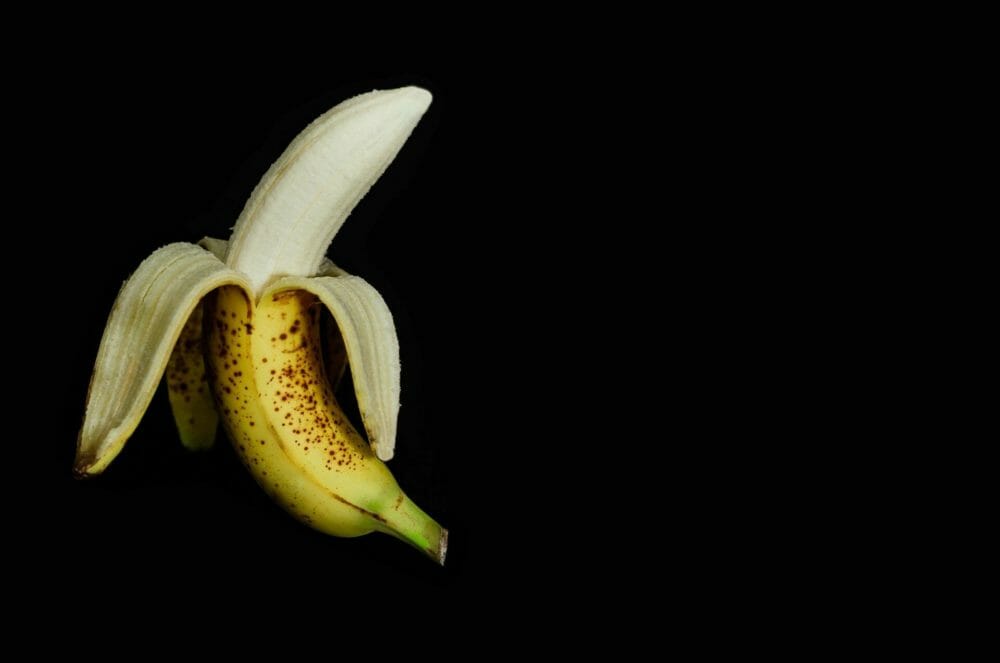If most people knew how some diseases threaten to take out their favorite foods, they’d go bananas. On average, humans around the world eat 130 bananas each year making them a staple but the global crop is at risk.
Colombia declared a national state of emergency in 2019 when its banana crop, one of its top exports, was on the verge of extinction due to a devastating disease plaguing the crop. Other top banana producing countries include Ecuador, Costa Rica, and Guatemala. Part of the problem lies in the fact that 99% of exported bananas are a variety called Cavendish, a serious deviation from a time when a variety of bananas were being produced. The Gros Michel, which is heralded as better than the Cavendish, was devastated in the 1950s due to a disease called banana wilt that is brought on by a soil-dwelling fungus.
The Cavendish was raised to popularity to take over in the Gros Michel’s wake but now scientists are warning that the presence of Tropical Race 4 (TR4), another strain of the same disease, could decimate the crop. Sadly, this isn’t the only disease lurking in the banana tree’s shadow.
No doubt in response to the impending peril, Dole Fresh Fruit Co. has teamed up with boron-based discovery platform startup Boragen to develop a treatment to protect against Black Sigatoka, one of the most prevalent and damaging diseases also plaguing bananas.
“As pressure to reduce chemical load increases, and the number available crop protection products reduces, the need for alternatives to control this disease is more important than ever,” Patricio Gutiérrez, research and innovation director for Dole Fresh Fruit, said in a statement about the partnership. “We look forward to collaborating with Boragen to develop new solutions to protect this nutritious household staple and improve the environmental, social, and economic sustainability of the banana trade.”
Black Sigatoka, also known as black leaf streak, is caused by the fungal pathogen Mycosphaerella fijiensis. One of the most destructive diseases to commonly grown banana cultivars, it has developed resistance to several current fungicides. If left untreated an entire plantation can be lost in only a few weeks.
Boron is a naturally occurring element in the environment and an essential micronutrient for plants. Boragen uses a unique boron-based toolbox to develop novel agrochemical compounds with potent broad-spectrum fungicidal activity with new modes of action. It claims that its crop protection library contains compounds that have multi-site modes of action to combat resistance while requiring fewer active ingredients than current products. Founded in 2015, the startup is based in Research Triangle Park in North Carolina.
Bananas aren’t the only food at risk
Citrus producers in Florida are facing a similar plight with citrus greening, also known as Huanglongbing. The bacterial disease causes citrus fruits like oranges to turn yellow and spotted on the leaves and fruit. Plants affected with the disease grow small, partially green fruit with a sour, medicinal flavor. A number of startups are trying to find new solutions to combat the disease like Phytelligence. The company teamed up with Florida Foundation Seed Producers to grow citrus greening-resistant rootstock.
Tackling devastating diseases with novel approaches is a popular mission for a number of agrifood tech startups even in the animal health sector. Though harmless to humans, African Swine Fever (ASF) has the world’s top pork producer China reeling. Pork production is down 5.5% year-on-year and prices on China’s most popular meat are up 25%. Rabobank also predicts that China’s pig herd could halve by the end of 2019.
The poultry industry’s struggles with bird flu a few years prior paint a troubling picture for swine producers if the disease is not curtailed. Around 2015, flocks were decimated by the highly contagious virus.
A few startups are trying to crack the problem. The developer of molecular diagnostic systems MatMaCorp claims to have successfully evaluated a genetic test to detect African swine fever in uncooked pork products, for example.
Crop protection, in general, is a popular target for startups, which takes a variety of approaches including gene editing, microbials, and more. Belgian startup Biotalys, which is making biological alternatives to conventional crop protection products, is aiming to mimic the immune response of certain animals like llamas. It recently raised a €45 million Series C round.





